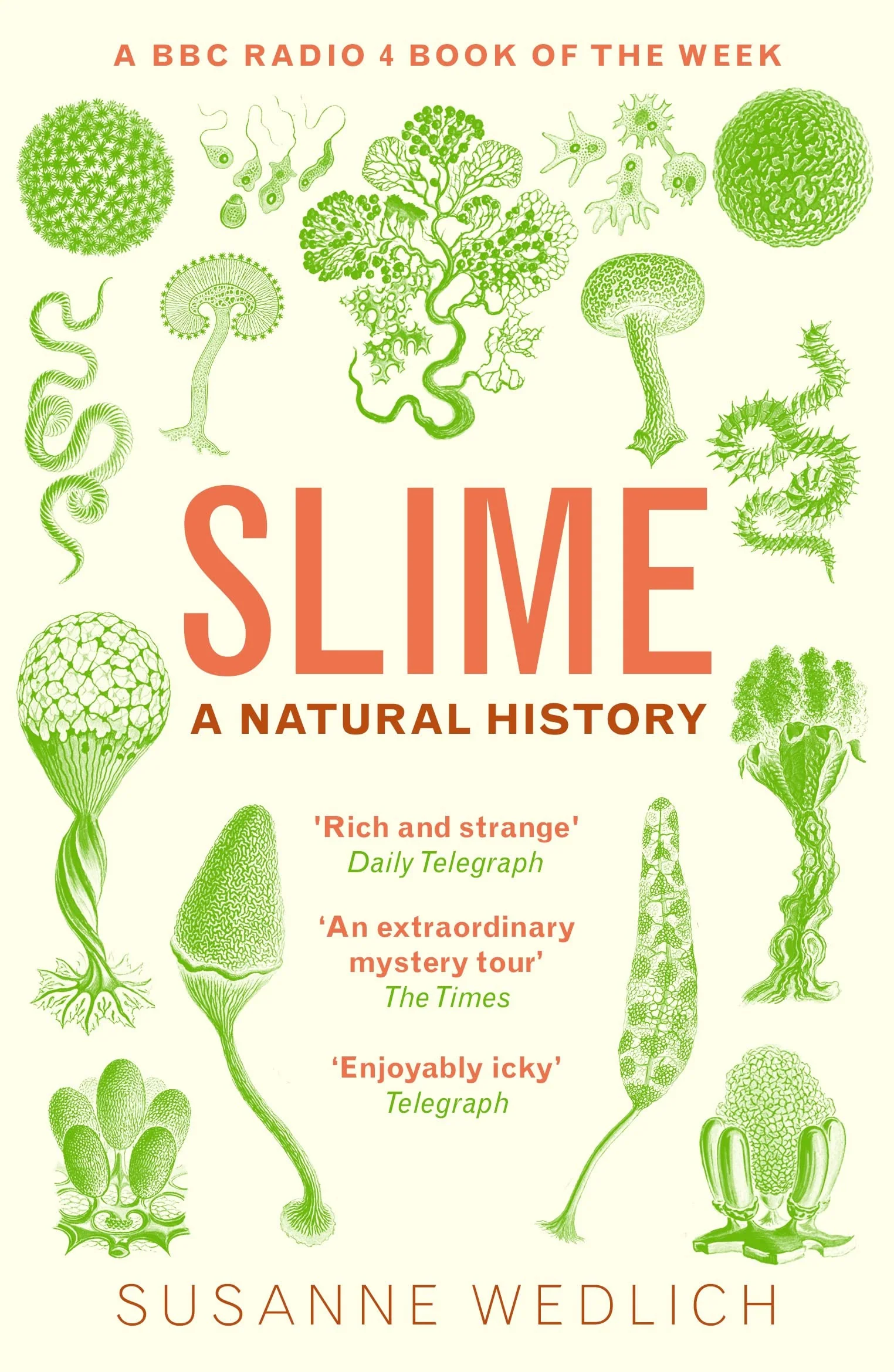Quotation: Susan Wedlich

“The Atacama Desert in Chile is one of the driest places on Earth. Very few bacteria, algae, fungi and lichen are able to survive here, in the soil crusts or as part of the soil microbiota. When the first rainstorms for decades made their way across this region in 2017 – a consequence of climate change – it seemed that the born survivors which inhabit this area would finally be granted a well-deserved embarrassment of liquid riches. In fact, the episode culminated in a microbial massacre as the unpredcedented excess of water caused the organisms to burst. Of the microbes which normally occur in and on top of the soil in Atacama, only a handful of species survived.”
– Susanne Wedlich, Slime: A Natural History, trans. Ayça Türkoğlu
I find myself quoting from books I like a lot, possibly too much to review. My energy for reviewing has dwindled of late, as I find it sharpens my attention to my own writing in ways that I don’t need. Also, I find my hackles rising at the kind of academese this kind of scientific non-fiction often strays into, almost as much as when reading the kind of faux-intellectual tripe journalists often list toward, with unfounded assertions, sweeping generalisations and the kind of harmful, exclusive binaries that make the world sound easier to grasp than it is. The only non-fiction I feel able to enjoy these days is well-researched sociology – The Spirit Level by Wilkinson and Pickett, or Bregman’s Humankind.
That said, Wedlich’s book starts very well. The opening immersion in b-movie horror slime, references to weird fiction and the punchy references to how patriarchal-medical sexism associates slime, female bodies and disgust, kept me going for the first 150pp. There’s a lot of solid grounding between the social, political and scientific here, as well as pop culture and human psyche/phobias.
Eventually, however, it has to give way to a more familiar scientific wonder. Much of the middle to late section of the book revels in sharing oddities, anomalies and outliers of the natural world’s phenomenal phenomena. As far as a reading experience goes, it leaves you with a string of ‘there’s this … and this … also this! … what about this? … etc.’ with very little argument holding it together. The delight taken in learning about each new delight thereby erodes somewhat through repetition. Some of the shorter sections are almost shapeless in their presentation, flowing together and breaking almost without coherence beyond the anecdotal, or non-sequital. To boot, there’s a wealth of unexplained concepts and terms from Wedlich’s research specialism that had me running to search engines repeatedly in some of these later sections; not a bad thing, given some of the ideas that flooded out, but harder work than the opening chapters led me to expect. And when Wedlich did then return to connections with bodies, climate change, politics or horror, it cam as a welcome relief.
This particular quotation about the Atacama Desert jumped out at me for the shock of how even supposedly positive climate changes can trigger full scale biocide. Those words ‘burst’ and ‘massacre’ are terrifyingly precise. The idea that a desert, having adjusted to a delicate balance over millennia, might suddenly become ecologically more verdant once rainfall returns, is, I’ll confess, one of my unspoken assumptions. We hear about how northern territories might become more fruitful, or how other ecologies might open up to further exploitation as conditions improve. Sure, yes, zones like Mediterranean islands and coastlines will experience increasing droughts and desertification, but we’ll be able to farm more heat-demanding fruit and vegetables in colder climate.
It’s a stark reminder of how the climate emergency is throwing off the balance in so many ways, wiping out habitats and unravelling habitable conditions for the absolute lowest part of our food chains. The succinctness of Wedlich’s writing in this regard is invaluable, concentrating her several degrees of expertise through a simple, anecdotal example of just how difficult things are going to become over the next century.
